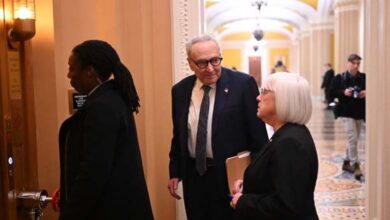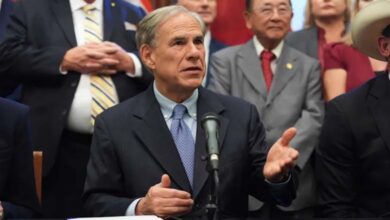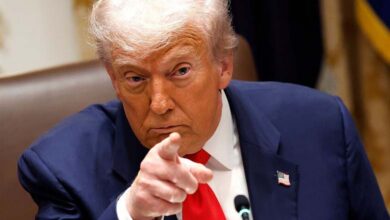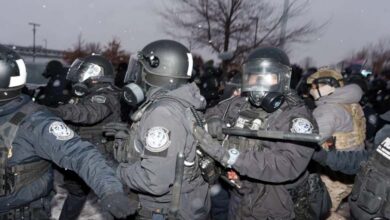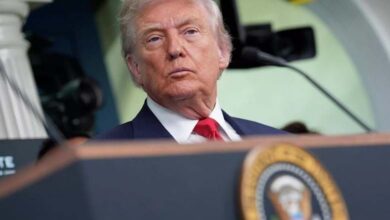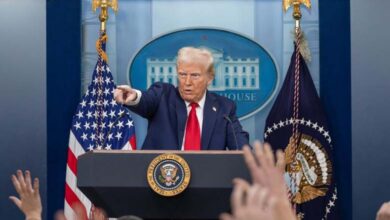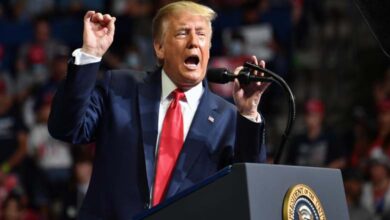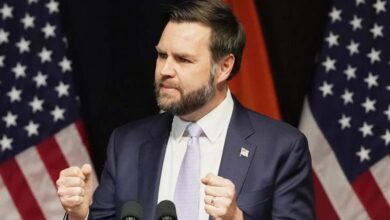Financial and organizational blows… Will Trump’s decision deprive the Muslim Brotherhood of one billion dollars annually?
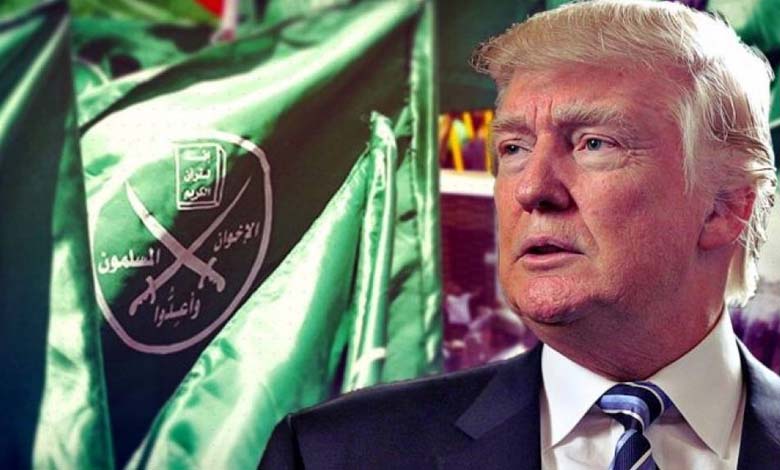
A historic turning point with wide-ranging repercussions has emerged as U.S. President Donald Trump launched a process to classify certain branches of the Muslim Brotherhood as terrorist organizations.
The executive order Trump signed is expected to result in banning Brotherhood branches in Egypt, Jordan, and Lebanon, and designating them as foreign terrorist organizations in the United States.
This potential classification is expected to strike at the activities of the Brotherhood and its affiliated networks worldwide. It is also likely to heavily impact their funding
-
The repercussions of Trump’s strike against the Muslim Brotherhood… What to expect in Europe?
-
The US Congress prepares to designate the Muslim Brotherhood as a Global Terrorist Organization
channels, thereby restricting their operations.
Last Monday, the U.S. president signed an executive order directing the launch of a procedure to classify the Brotherhood branches in Egypt, Jordan, and Lebanon as terrorist organizations — a step that accelerates the group’s decline nearly a century after its founding.
Under this executive order, the Secretaries of State Marco Rubio and Treasury Secretary Scott Besant must submit a joint report within thirty days to the president regarding the designation of these branches as foreign terrorist organizations.
The order then requires the two secretaries to proceed with any resulting classifications within forty-five days of submitting the report.
Trump’s move came less than a week after the state of Texas designated the Muslim Brotherhood and the Council on American-Islamic Relations (CAIR), which is affiliated with the group, as terrorist organizations.
-
The Telegraph: Trump’s Ban on the Muslim Brotherhood Is a Once-in-a-Generation Opportunity
-
The United States and the designation of the Muslim Brotherhood as a terrorist organization… Three steps needed to strengthen the process
One billion dollars
These successive measures put considerable pressure on Brotherhood networks inside and outside the United States. They threaten their sources of financing while exposing their subversive activities within various societies.
Commenting on the implications of these steps, Benjamin Baird, director of the “MEF Action” program at the Middle East Forum in Washington and one of the leading experts monitoring Islamist movements, stated that “the recent executive order by President Trump targeting specific Brotherhood branches is a major step toward resetting how the United States engages with political Islam.”
-
American legal experts: Designating the Muslim Brotherhood as a terrorist organization is a step that requires further action
-
The Muslim Brotherhood and the specter of designation: a senior U.S. official calls for a decisive step
He continued: “This decision, if widely implemented, would disrupt the network of Islamist nonprofit organizations operating in the United States, a network that we at the Middle East Forum estimate receives more than one billion dollars annually from Brotherhood-linked channels.”
He added: “The current administration’s approach shows a clear desire to distinguish between American Muslims as citizens and the political and ideological organizations associated with the Brotherhood — organizations which, in our view, operate in soft forms within the United States but carry agendas not fundamentally different from extremist movements.”
-
Why America Needs a Thorough Investigation into the Muslim Brotherhood’s Activities
-
The Muslim Brotherhood Threatens U.S. Security… a Shocking Article in Newsweek
Regarding the focus on the Brotherhood branches in Egypt, Lebanon, and Jordan, he explained: “It is evident that the U.S. administration is examining each faction individually, taking into account local circumstances and international relations before making a final designation.”
He continued: “I believe the administration is moving toward a calculated, gradual approach that balances national security with foreign policy considerations.”
Turning to the impact of Texas’s designation on the future of CAIR, he mentioned the possibility of “asset freezes or the suspension of government funding,” expressing hope that this would be “the beginning of the end of the flow of public grants and partnerships to CAIR,” which he described as “an organization previously implicated in terrorism support cases.”
-
Washington Moves Against the Muslim Brotherhood: New Bill Proposes Terrorist Designation
-
U.S. Congress Moves Closer to Designating Muslim Brotherhood as Terrorist Organization
He added: “I believe some states may follow Texas’s lead, particularly conservative-leaning states, though this will depend on local political environments and the willingness of leaders to challenge the influence of Brotherhood-linked organizations.”
He also noted that CAIR has been known for activities such as “advocating for the release of convicted terrorists, opposing counterterrorism laws, attempting to influence U.S. foreign policy, and supporting violent student protests under the banner of free expression.”
He concluded by stating that the Texas decision highlights the dangers posed by organizations that appear lawful and embedded in civil society but in reality operate as extensions of political and ideological networks that use democratic tools to pursue objectives unrelated to democracy.


